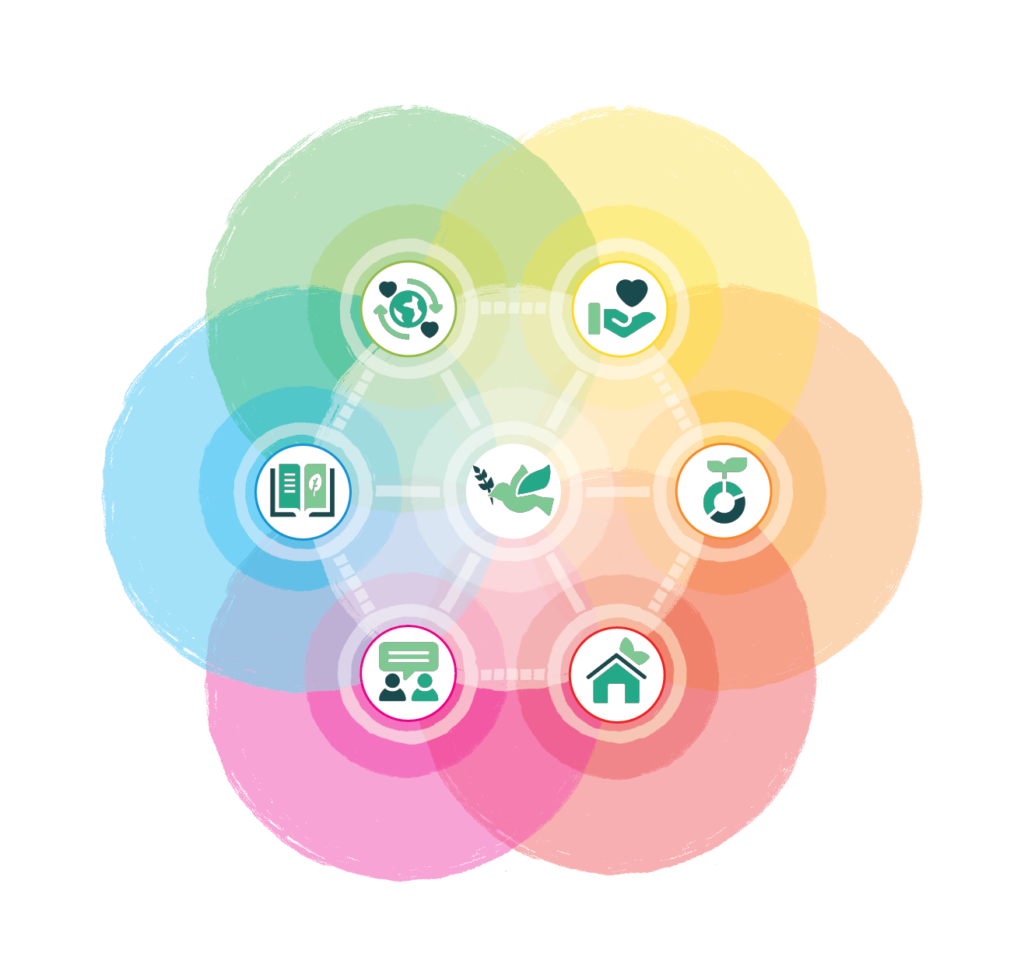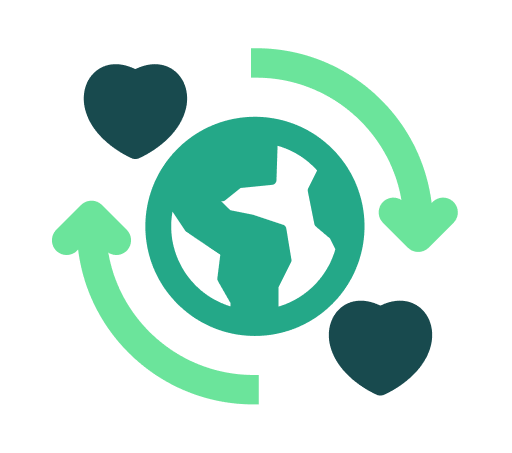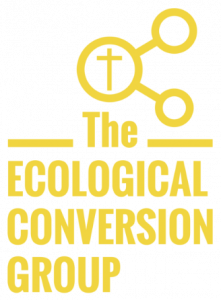The Laudato Si' Goals
Why were these goals created?
“We are faced not with two separate crises, one environmental and the other social, but rather with one complex crisis which is both social and environmental.” Laudato Si’ 139
“”When we speak of the “environment”, what we really mean is a relationship existing between nature and the society which lives in it.” Laudato Si’ 139
“we have to realize that a true ecological approach always becomes a social approach; it must integrate questions of justice in debates on the environment, so as to hear both the cry of the earth and the cry of the poor.” Laudato Si’ 49
“Strategies for a solution demand an integrated approach to combating poverty, restoring dignity to the excluded, and at the same time protecting nature.” Laudato Si’ 139
A lens to stay true to the Gospel in modern times
The unique thing about these goals is that they primarily help us to understand the links between things, with a primary focus on what our faith informs us, allowing us to be consistent in our ethics.
These goals help us look at the inter-related nature of reality, our ‘integral ecology’ which simply put means ‘everything is connected’; our relationship with God, with our neighbours, and with our common home. Just as we are all connected to the lives of billions through society, economy and nature.
In order to build the kingdom of God we cannot isolate or exclude any of these elements of reality.
As all these things are joined up we may find hope in our actions, realising that “An integral ecology is also made up of simple daily gestures which break with the logic of violence, exploitation and selfishness.”
A lens to stay true to the Gospel in modern times
The unique thing about these goals is that they primarily help us to understand the links between things, with a primary focus on what our faith informs us, allowing us to be consistent in our ethics.
These goals help us look at the inter-related nature of reality, our ‘integral ecology’ which simply put means ‘everything is connected’; our relationship with God, with our neighbours, and with our common home. Just as we are all connected to the lives of billions through society, economy and nature.
In order to build the kingdom of God we cannot isolate or exclude any of these elements of reality.
As all these things are joined up we may find hope in our actions, realising that “An integral ecology is also made up of simple daily gestures which break with the logic of violence, exploitation and selfishness.”

Spirituality
This goal encourages us to connect our quest to love God with the world that He made.
Our spirituality is how we direct our lives towards God. If we believe that God created the universe and saw that “it was very good”, if we believe that He loves us as He loves all of His human creatures, then if we say ‘I love God’-… what does that mean for our attitudes and actions towards His creation? How do faith,
love and hope become our motivation?
“What must I do to inherit eternal life?” When asked this, Jesus tells the parable of the Good Samaritan, showing that a care for our fellow creatures was a necessity in loving God.
Our mistreatment of our planet is wrong not only because God loves it, but also because much of the human suffering in the world is caused by the destruction of nature, our ‘daily bread’.
When we aspire to accumulate more of the world than we need, we harm our relationships with God, neighbour and planet.

Responding to the cries of the Earth
This goal asks us to listen and respond to the cries of the Earth. This means understanding where we are plundering, poisoning and polluting and harming our common home and all forms of life who live there. It asks us to live up to our vocation to be stewards of creation, safeguarding the beauty of the earth and ensuring the wellbeing of all.
Responding to the cries of the poor
This goal encourages us to listen and be merciful to the cries of the vulnerable, voiceless, suffering, exploited, lonely, sick, poor and hungry. It asks us to act to bring justice. It asks us to have a consistency in our defense of human life, from conception to death, and ensuring future generations inherit a better world. This means we recognise the world itself is vulnerable.
Building Community Resilience and Empowerment
This goal encourages us to build up our communities to face challenges, environmental and social, with confidence, competence, and hope. How can we organise communities, and re-imagine community space, to encourage everyone to participate in the change we would like to see in the world? How can we help people to help themselves, globally and locally? Do we build bridges with our wider community when issues affect us all? How can we build communities that better reflect the Kingdom of God?
Engaging in Ecological Economics
This goal encourages us to ensure that, we have a positive impact on both people and planet through the goods and services we use. How can economic choices support fair and healthy societies, ecosystems and dignified work? What might be the benefits of re-imagining a more local economy, which prioritises sharing ?
Pursuing an Ecological Education
This goal encourages us to learn and mature over our whole lifetime. How can we learn to love God, look after mind, body and soul and our Common Home? What we are teaching? What priorities do we choose and how do these shape our interaction with the world? What are the places in which we learn? Think about our family, parishes, school, university, the local community and our natural surroundings. Ecological education enables us to translate our learning into habits and behaviour that puts care of God’s creation above self-interest.
Adoption of Sustainable Lifestyles
This goal encourages us to reflect on what it is to have enough, and to ensure that others, including future generations, will have enough. It asks us to recognise the need to limit ourselves to a sufficient amount, rather than using the planet and its people as a means to our own convenience and comfort.

















